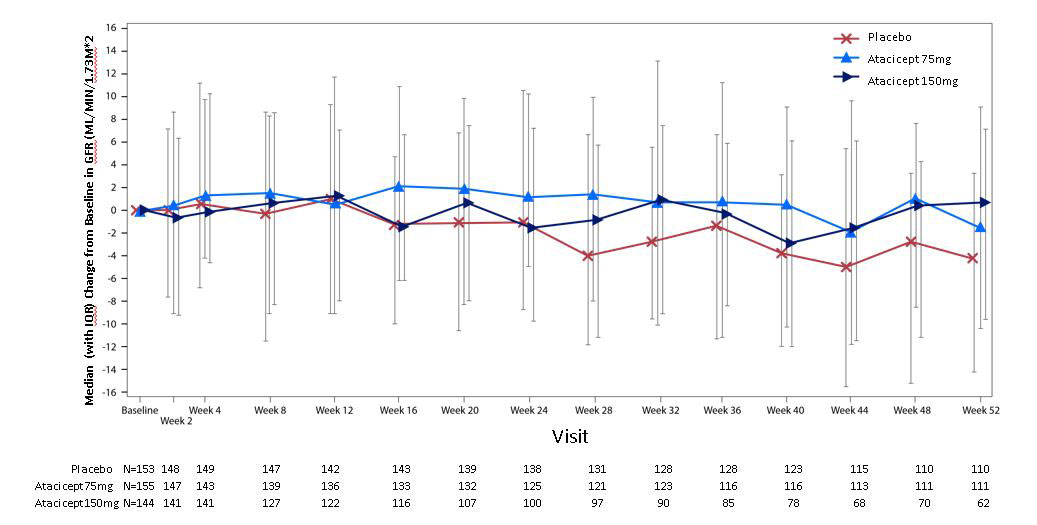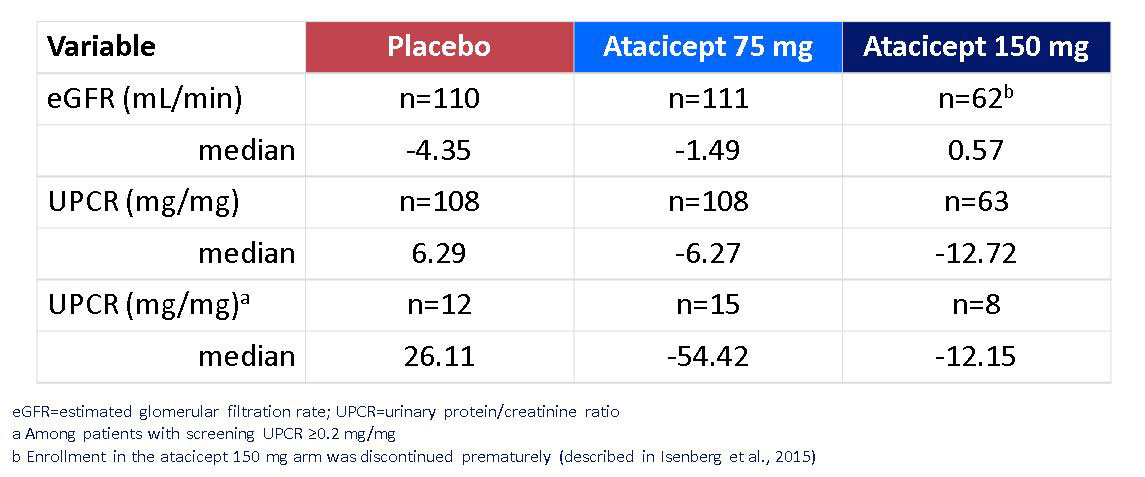Session Information
Date: Sunday, November 13, 2022
Title: SLE – Treatment Poster II
Session Type: Poster Session B
Session Time: 9:00AM-10:30AM
Background/Purpose: Atacicept is a fusion protein that blocks B-lymphocyte stimulator and a proliferation-inducing ligand, which are increased in patients with SLE. APRIL-SLE was a double-blind, placebo-controlled, Phase 2 study that randomized patients with moderate-to-severe systemic lupus erythematosus (SLE) to atacicept 75 mg, atacicept 150 mg, or placebo twice-weekly for 4 weeks, then weekly for 48 weeks.The primary results of the APRIL-SLE study – the effect of atacicept compared to placebo in preventing new flares in patients with moderate-to-severe SLE – have been reported (Isenberg et al., 2013). We performed a post hoc analysis to describe the effect of atacicept compared to placebo on measures of renal function in patients with SLE; this effect has not been reported previously.
Methods: The APRIL-SLE study excluded patients with moderate to severe glomerulonephritis, as defined by either of the following: urinary protein/creatinine ratio (UPCR) >1 mg/mg and/or hematuria or a significant renal impairment as defined by estimated glomerular filtration rate (eGFR)
Results: In total, 111 patients in the placebo group, 112 patients in the atacicept 75 mg group, and 62 patients in the atacicept 150 mg group completed 52 weeks of treatment. The eGFR time course was stable for the atacicept groups compared to a 4.4% decline in the placebo group from baseline at week 52 (figure and table). UPCR from baseline at week 52 declined in the atacicept groups and increased in the placebo group.
Conclusion: Results from this double-blind, placebo-controlled, Phase 2 study suggest a potential for improved renal function with atacicept treatment of patients with moderate-to-severe SLE.
To cite this abstract in AMA style:
Isenberg D, Lin C, Kao A, Aydemir A, Gordon C. Effect of Atacicept on Renal Function in Patients with Systemic Lupus Erythematosus (SLE) [abstract]. Arthritis Rheumatol. 2022; 74 (suppl 9). https://acrabstracts.org/abstract/effect-of-atacicept-on-renal-function-in-patients-with-systemic-lupus-erythematosus-sle/. Accessed .« Back to ACR Convergence 2022
ACR Meeting Abstracts - https://acrabstracts.org/abstract/effect-of-atacicept-on-renal-function-in-patients-with-systemic-lupus-erythematosus-sle/


